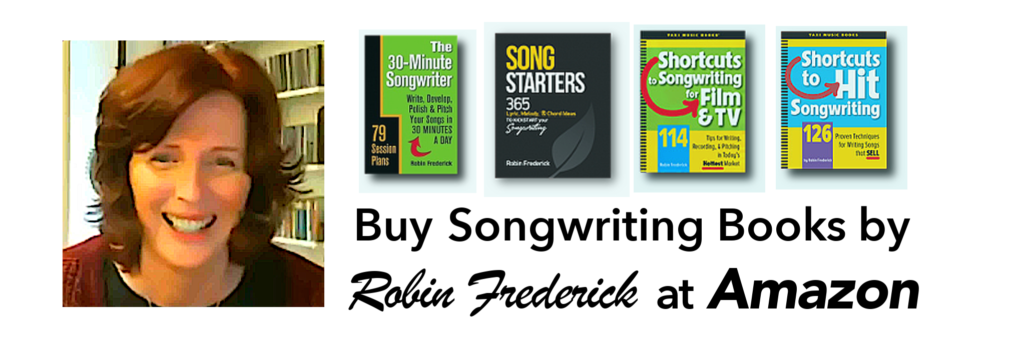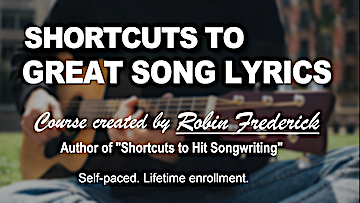Most of us began writing songs because we wanted to share a personal experience or emotion that was important to us. And we’re not alone. Many of the music industry’s biggest hits are based on personal experience—from songs by Fleetwood Mac and Joni Mitchell to Adele, Lewis Capaldi, Sara Bareilles, Ed Sheeran, John Legend, and more— the story behind the hit song is often a personal one.
Writing songs from personal experience is a good choice because you are the best person to write that song. You were there, you know how it felt, you know what you did. You can describe it better than anyone because it happened to you.
The most difficult thing about using a personal experience is that you know too much and, at the same time, you don’t know enough. By that I mean you have a lot of feelings and memories—you know all the details, how things came together or fell apart, all the people involved—but you might not have an idea of which things are important, what it all means, and what emotions you were really feeling.
And there’s one more thing to think about—we’ve all encountered that self-centered, boring fish who drones on and on and on about themselves. There’s nothing worse than trying to pretend you’re interested in what they’re saying. So, how do you write about yourself and keep it interesting for listeners? (No boring fish allowed!) Here are four tips for writing great songs about your personal experience that listeners will find engaging, compelling, and not boring at all!
#1. GET SOME PERSPECTIVE ON YOUR EXPERIENCE
The most difficult thing about using a personal experience is that you know too much and, at the same time, you don’t know enough. By that I mean you have a lot of feelings and memories—you know all the details, how things came together or fell apart, all the people involved—but you might not have an idea of which things are important, what it all means, and which emotions you were really feeling.
Before you start writing, spend some time going over what happened. Whether it was recent or in the past, drop yourself into the experience in your mind. Close your eyes and feel as you did then. Relive it.
Now write down what you remember, especially your feelings about it. Don’t try to make it perfect; this is raw material. Just write.
Interview yourself as you write:
- What happened? What led up to it?
- What did you feel? What was that emotion like?
- Was another person involved? How did you feel about them?
- What did you do? Or what did you want to do?
- Did you learn something from the experience?
- Why was this experience important to you?
#2. WHAT WILL YOU FOCUS ON?
Once you’ve spent time going over the experience, you’re likely to find that what seemed like one big experience is made up of a lot of smaller ones: realizations, shifts in your feelings, u-turns, and unexpected outcomes. In any experience, there will be many moments… and many songs. Don’t try to tell listeners EVERYTHING in one song. If you do, you’ll end up staying on the surface. Instead, you’ll have a better chance of keeping listeners engaged if you go deeper into a single moment, story thread, or event.
Try these tips and examples for organizing your lyric.
Replay something you said or wish you’d said to another person.
- “I Can Treat You Better” – Shawn Mendes
- “Don’t Start Now” – Dua Lipa
- “Cold” – Chris Stapleton
Build your lyric around a single idea or realization
- “Like I’m Gonna Lose You” – Meghan Trainor
- “Beautiful Things” – Benson Boone
- “Flowers” – Miley Cyrus
- “Trouble With a Heartbreak” – Jason Aldean
If you’re telling a story, choose the three most important moments and describe them in Verse 1, Verse 2, and the Bridge. Tie them together with your Chorus.
- “Cruel Summer” – Taylor Swift
- “Play It Again” – Luke Bryan
Try a character portrait of someone or describe yourself. Don’t stay on the surface—make us feel what it’s really like to know them or know you.
- “Backseat Driver” – Kane Brown
- “Burnin’ Man” – Dierks Bentley
- “Shake It Off” – Taylor Swift
#3. IT’S NOT ABOUT FACTS. IT’S ABOUT FEELINGS.
When it comes to songwriting, it’s not “Just the facts, Ma’am.” It’s about looking beyond the facts to the more universal experience that exists behind your situation. To do that, you may need to make a few alterations. When an epic movie trailer proclaims that the film is ‘based on a true story,’ you know they’ve changed things to make the story more dramatic or more satisfying. You can do the same thing with a lyric.
Give shape and interest to your experience by leaving some things out—too many unnecessary facts will cause listeners to lose interest. Or maybe you need to add something—something you wish you’d said but didn’t. Sometimes you just need to loosen up the facts a little. I had a student who wanted to write about the breakup of his relationship—his girlfriend became emotionally distant and finally moved to Minnesota. (He’s in California.) In his chorus, he wrote: You moved away to Minnesota. Did listeners need this fact? I suggested he try something a little broader: You moved away to someplace colder. The “someplace colder” could be a metaphor, not only for the physical move, but for the way her feelings cooled. Listeners can relate to that.
#4. BRING IT TO LIFE FOR THE LISTENER
Use vivid, descriptive language and emotional detail to help listeners feel what your experience felt like to you. Describe your feelings in pictures and physical sensations. Compare the experience to things the listener can imagine. My blog post Add Emotion to Your Lyrics includes plenty of tips to get you going.
DO THESE SONGS WORK FOR ALL MARKETS?
Songs of personal experience can work for indie artist releases (your own or a collaborator’s) and pitches to other artists. Social media and streaming are good outlets for all songs in this style. Listeners are always interested in what others are going through—it’s hardwired in us as humans. We’re social animals and our emotional reactions to situations are the same everywhere.
You can pitch these songs to the Film & TV market if you keep your specific story details to a minimum and focus on the emotions you felt. Try to capture your own experience in a way that others can relate to. If you can do that, then just about any market is open to you.


